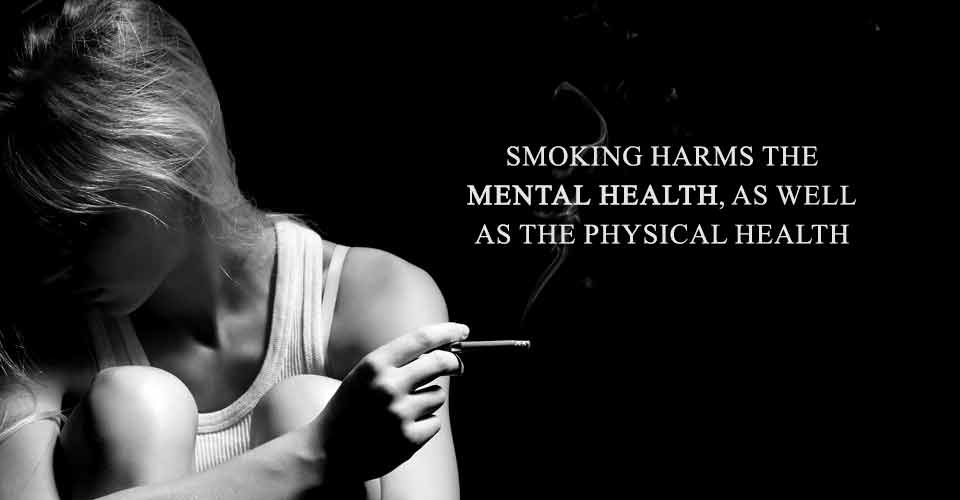Most of us understand the toll smoking cigarettes takes on the body. The evidence is overwhelming. The statistics are horrifying and indisputable. The pictures are nauseating. More importantly, most of us have a family member or friend whose life has been cut short by this habit. Smoking is the number one avoidable cause of death in the United States.
Did you know that it is also dangerous for your mental health?
Cigarettes contain over 4,000 different chemicals – many of which are known toxins and carcinogens. These include carbon monoxide, ammonia, and even arsenic. With this in mind, it should come as no surprise that, in long-term smokers, these chemicals can build up over time and damage certain areas of the brain.
Habitual cigarette smoking has been tied to problems with both working memory and prospective memory. It has also been shown to damage the overall executive function of the brain. These are arguably the most important aspects of brain function when it comes to daily independent living and task completion. As they deteriorate, the brain appears to age before its time.
In a recent study, researchers from Northumbria University found that people who smoke heavily experience more challenges with prospective memory than those who do not. This effect was compounded in test subjects who both smoked and drank in excess. This suggests that combining the two might have a synergistic effect. Rather than adding the memory difficulties to one another, our brain seems to multiply them.
Prospective memory refers to our capacity to remember to carry out a planned activity. It’s what helps us to remember birthdays, stick to a schedule, and complete our homework on time. A good prospective memory is what makes us dependable. It’s truly important in nearly every aspect of our daily lives.
Recent research linking smoking with memory loss has gone beyond the effects on the active smoker. Passive smoking, or the inhalation that occurs when we simply stand near someone smoking a cigarette, has been proven to cause brain and health problems as well. It has long been known that passive smoking, also called second-hand smoking, can cause lung and cardiovascular problems. It’s now becoming clear that it can harm our capacity for memory, as well.
Deciding to quit smoking is an incredibly brave thing to do. It’s also notoriously difficult. The withdraw symptoms are rough. Most quitters report feeling irritable, angry, or anxious in the early days. They have trouble thinking. They crave food and tobacco at an unprecedented rate. Then, the symptoms subside and the body and mind begin to recover.
When you quit smoking, your heart and lungs will regenerate shockingly fast. Your brain will also become stronger. When you stop using nicotine, the brain’s cortex thickens. This mimics the effect of aging, but in reverse. Essentially, your brain will become younger as your body becomes healthier. If you regularly smoke near loved ones, their health will improve as well.
If you are worried about your memory but not ready to quit smoking, you may want to consider using an e-cigarette. Switching from traditional tobacco to this device has been shown to improve prospective memory. However, we unfortunately know very little about the long-term consequences of this new technology. Those who are capable of quitting entirely should absolutely go that route.
“Giving up smoking is the easiest thing in the world,” wrote Mark Twain. “I know because I’ve done it thousands of times.” Quit for a day. Use patches and gum. See a doctor. Join a support group. Quit once, twice, or a million times. Just start now.



